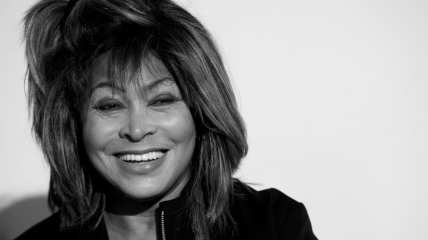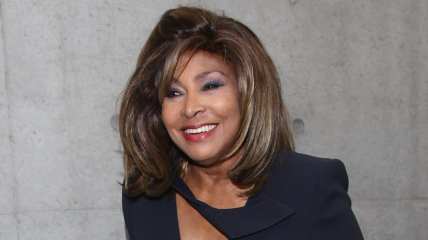Janelle Monáe is the inspiring, queer Black female superstar we need
OPINION: Janelle Monáe's new video for "Lipstick Lover" is about freedom, Black beauty, LGBTQ pride, body positivity, sex positivity and love.
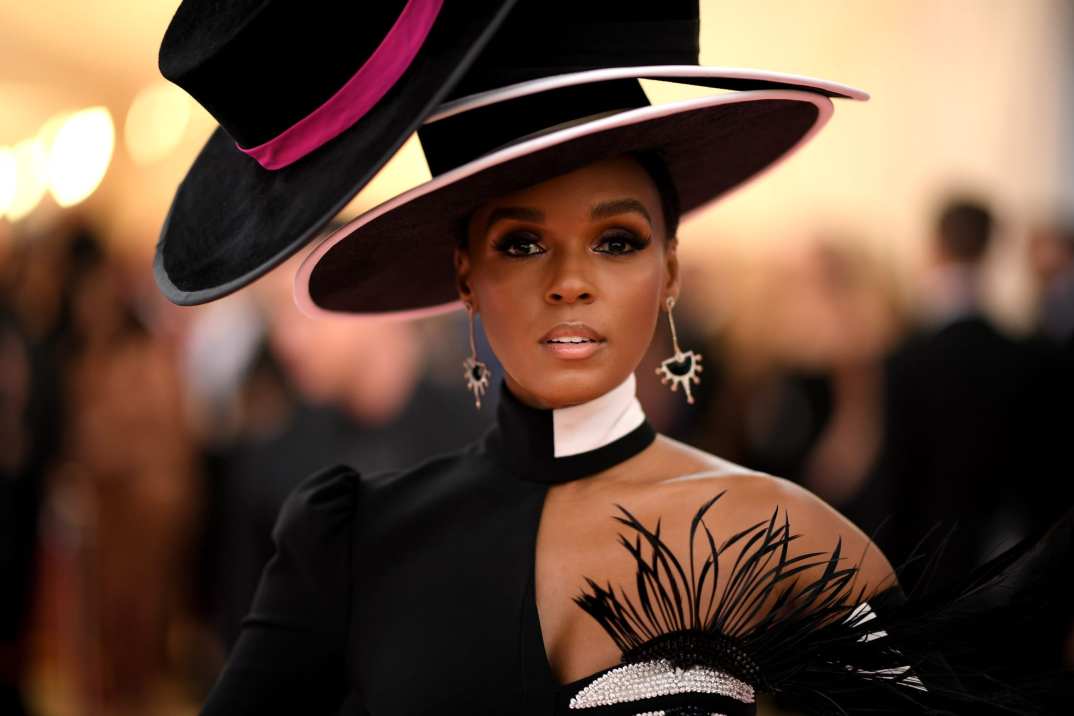
Editor’s note: The following article is an op-ed, and the views expressed are the author’s own. Read more opinions on theGrio.
Janelle Monáe’s hot new video “Lipstick Lover” gives us an explosion of Black beauty. She’s at a pool party filled with Black women. It’s a lush, outdoor scene that takes place at a gorgeous compound in, maybe, California or Jamaica or Belize or somewhere that’s tropical and dreamy. Everyone in the video seems free and in love with being themselves. The vibes of the video are all about body positivity and sex positivity and Black love. Monáe and her friends are dancing suggestively and flaunting their bodies and kissing. To see Black women loving on other women so publicly is powerful and liberating, but hey, liberation is a central message from Monáe’s career.
The song “Lipstick Lover” is as much of an overtly lesbian statement as any pop song has ever made. Monáe herself is nonbinary, but the song and the video are all about beautiful Black women dancing and kissing and being together. Monáe sings, “I like lipstick on my neck” as an artful way of praising and normalizing lesbian love and affection. It’s a song that could fit on pop radio and in gay clubs. That means it can serve both a lesbian community that craves her music and the validation it brings as well as a straight, pop music-loving world where Monáe can help further normalize queerness.
This video also represents a new chapter in Monáe’s stylistic journey. She’s always been very thoughtful about her sartorial approach. She started out wearing black and white all the time which stood out in a world where pop stars are always in color. But more importantly, she was in black and white so consistently that it felt like a uniform, which was the point. The choice was meant to be symbolic of the uniforms that Black people wore as domestics and a reminder of where Monáe herself had come from. In 2012, at the Black Girls Rock! ceremony, she told the crowd, “When I started my musical career I was a maid. I used to clean houses. My parents — my mother was a proud janitor, my stepfather, who raised me like his very own, worked at the post office and my father was a trash man. They all wore uniforms. And that’s why I stand here today in my black and white and I wear my uniform to honor them.” In her black and white uniform, Monáe evoked the maid or the butler, and she symbolically lifted up all the Black workers who came before us — all those Black people whose shoulders we stand on so that today we can be whatever we want.
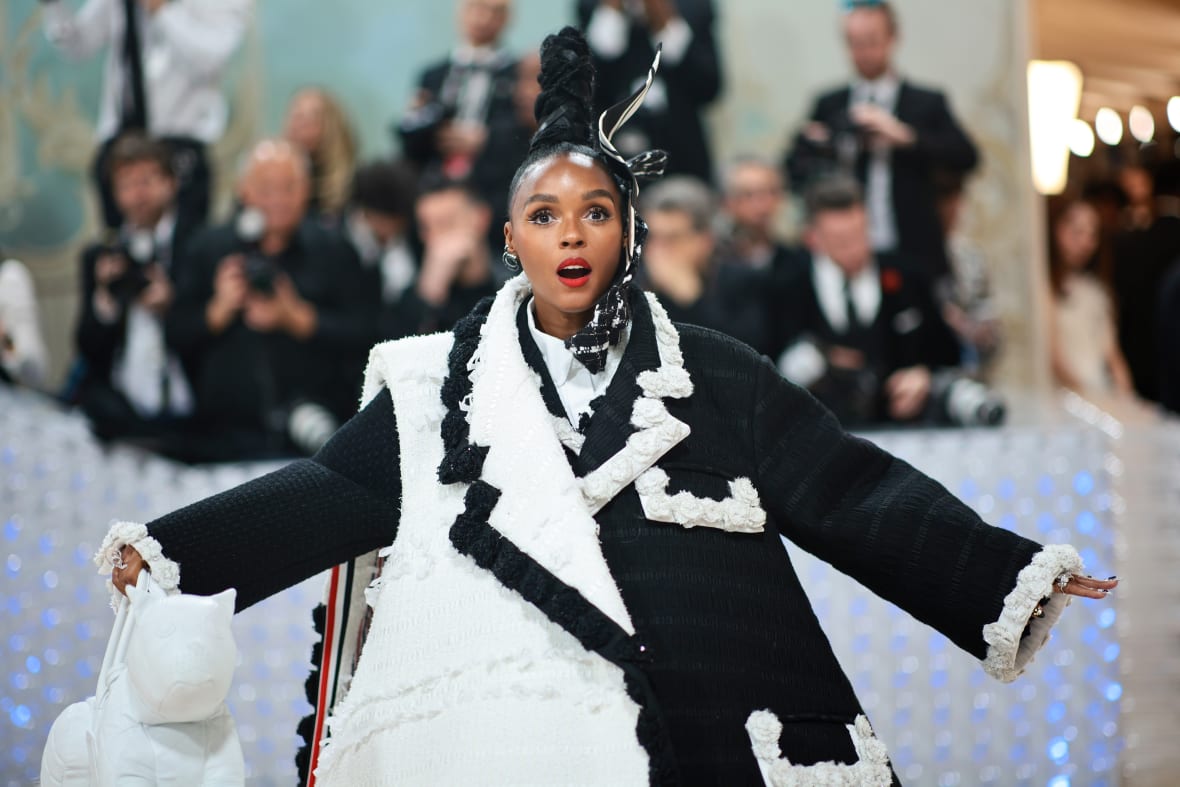
Now, in her “Lipstick Lover” era, Monáe is on a different journey. In the video, she’s in tight a T-shirt and short shorts. The look is natural and free. She seems liberated. And yes, Monáe has always seemed like she was liberated, but this feels like a step further into that. Last year, Monáe told the “LGBTQ&A” podcast “I’m laughing more, I’m partying with my friends more, I’m really more relaxed as an artist and so I think that my music is probably going to be, without giving too much away, less heady and less about fighting against opposition.”
So she’s fighting less overtly, but Monáe is someone whose whole life is a political statement. She’s a queer Black woman who’s living her truth and doing what she wants and being successful at a time when being Black, female and queer can be difficult. Even if Monáe is not speaking directly about oppression now, she’s proof that we can fight against it in the way we live our lives. We can live in a way that pushes back against the boundaries that oppression would set.
The notion of “the personal is political” says that marginalized people can make political statements through the way they live their lives. When marginalized people make the choices they want to make and break barriers and live in happiness, that is revolutionary in a world meant to suppress marginalized people. Through our personal lives, we can make political statements; we can say women or Black people or trans people can live happy, successful lives on our own terms.
Monáe’s new natural phase feels very personal is political. She’s presenting herself as natural and authentic in a world where she’s super successful without having to sacrifice who she really is. For a Black queer woman to have massive success while out of the closet and living completely on her own terms is a powerful political statement that speaks volumes. I love Janelle Monáe not just for the music and the movies. I love to see the way she lives her life. She’s a political activist without even trying.
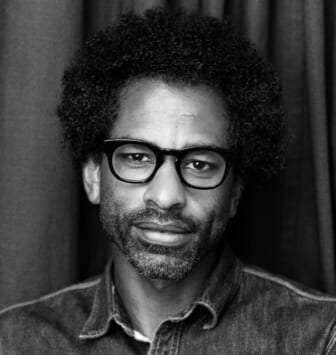
Touré is a host and Creative Director at theGrio. He is the host of the podcast “Toure Show” and the podcast docuseries “Who Was Prince?” He is also the author of seven books including the Prince biography Nothing Compares 2 U and the ebook The Ivy League Counterfeiter. Look out for his upcoming podcast Being Black In the 80s.
TheGrio is FREE on your TV via Apple TV, Amazon Fire, Roku, and Android TV. Please download theGrio mobile apps today!
